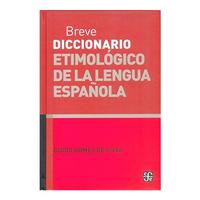3 - La raíz de la palabra "hablar"
|racine||||
The|root||||
|Wurzel||||
3 - Die Wurzel des Wortes "sprechen".
3 - The root of the word "speak"
3 - ریشه کلمه حرف زدن
3 - La racine du mot "parler".
3 - 「話す」の語源。
3 - žodžio "kalbėti" šaknis.
3 - De stam van het woord "spreken".
3 - A raiz da palavra "falar".
3 - Корень слова "говорить".
3 - "Konuşmak" kelimesinin kökü.
La raíz de la palabra "hablar"
The root of the word "talk"
「話す」の語源
LOCUTOR
Sprecher
ANNOUNCER
アナウンサー
A ver si sabes, amiga.
Let's see if you know, friend.
あなたが知っているかどうか見てみましょう、友よ。
¿O quieres que te lo diga?
Or do you want me to tell you?
それとも私にあなたに言って欲しいですか?
¿Qué significa la palabra “hablar”?
What does the word "talk" mean?
「話す」とはどういう意味ですか?
MUJER
WOMAN
¿Hablar?
To talk?
Bueno, hablar significa…
Well, talking means ...
no sé,
I dont know,
abrir la boca y decir palabras,
den Mund öffnen|||||
open your mouth and say words,
¿no es eso?
no||
is not that?
LOCUTOR
ANNOUNCER
Tal vez sí, tal vez no…
Maybe yes, maybe no…
Escucha el curioso significado de… hablar.
||curieux|signification||
|the|curious|||
||neugierig|||
Listen to the curious meaning of ... talk.
LOCUTORA
ANNOUNCER
“Hablar” viene del latín “fabulari”,
||||to talk
"Talk" comes from the Latin "fabulari",
y quiere decir “contar fábulas”,
|||Märchen erzählen|Fabeln erzählen
|||to tell|fables
and it means "tell fables",
contar historias.
tell stories.
“DICEN QUE ALLÁ, AL OTRO LADO DEL RÍO… ... ... ”
ils disent||là-bas|||||
"THEY SAY THAT THERE, ON THE OTHER SIDE OF THE RIVER ... ... ..."
LOCUTOR
Sprecher
ANNOUNCER
En castellano antiguo
Im|Altspanisch|Altspanisch
|Spanish|ancient
In old Spanish
se decía “fablar”.
|man sagte|sprach man
it||to speak
It was said to "fable."
LOCUTORA
ANNOUNCER
En portugués,
In Portuguese,
“falar” tiene la misma raíz.
parler||||
"sprechen"||||
speak|has|the||
"Falar" has the same root.
LOCUTOR
ANNOUNCER
El francés, “parler”,
||to speak
French, "parler",
y el italiano “parlare” vienen de “parábola”,
||||||Parabel
|||to speak|||parable
and the Italian "parlare" come from "parable",
que significa más o menos lo mismo:
which means more or less the same:
cuentos, comparaciones.
|Vergleiche
|comparisons
Stories, comparisons.
LOCUTORA
ANNOUNCER
Hasta en inglés,
Even in English
el verbo “to talk” viene de “tale”,
|verb||hablar|||cuento
the verb "to talk" comes from "tale",
fábulas, historias.
fables, stories
LOCUTOR
ANNOUNCER
Las ideas abstractas,
||abstrakte Ideen
||abstract
Abstract ideas,
los discursos incomprensibles…
|unverständliche Reden|unverständliche
||incomprehensible
incomprehensible speeches ...
aburren y distraen.
s'ennuient||détournent
langweilen||ablenken
bore||distract
They bore and distract.
LOCUTORA
Son los relatos, las narraciones…
||les récits||les récits
||stories||narrations
It's the stories, the stories ...
las que encantan al oído.
||plaisent||oreille
||love||
The ones that love the ear.
LOCUTOR
Habla cuando tengas algo que contar.
parle|quand|tu as|quelque chose||
Talk when you have something to tell.
LOCUTORA
La raíz de las palabras.
La||||
The root of the words.

